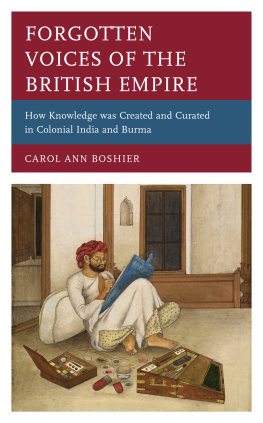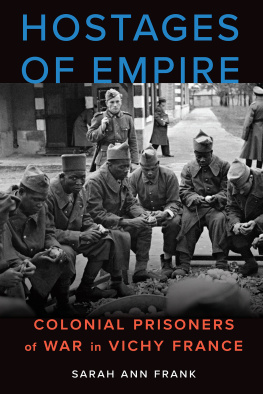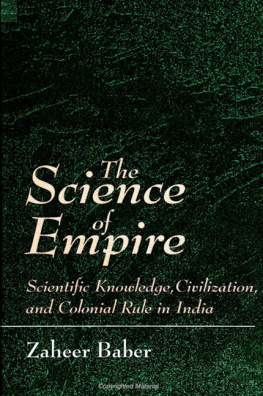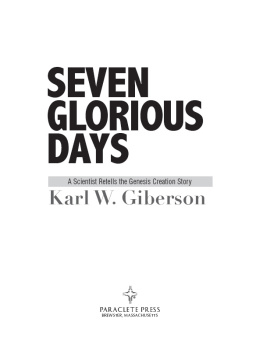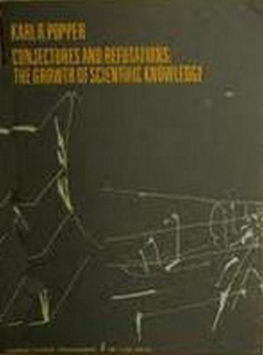Ittmann Karl - The demographics of empire the colonial order and the creation of knowledge
Here you can read online Ittmann Karl - The demographics of empire the colonial order and the creation of knowledge full text of the book (entire story) in english for free. Download pdf and epub, get meaning, cover and reviews about this ebook. City: Africa;Athens, year: 2010, publisher: Ohio University Press, genre: Politics. Description of the work, (preface) as well as reviews are available. Best literature library LitArk.com created for fans of good reading and offers a wide selection of genres:
Romance novel
Science fiction
Adventure
Detective
Science
History
Home and family
Prose
Art
Politics
Computer
Non-fiction
Religion
Business
Children
Humor
Choose a favorite category and find really read worthwhile books. Enjoy immersion in the world of imagination, feel the emotions of the characters or learn something new for yourself, make an fascinating discovery.

- Book:The demographics of empire the colonial order and the creation of knowledge
- Author:
- Publisher:Ohio University Press
- Genre:
- Year:2010
- City:Africa;Athens
- Rating:5 / 5
- Favourites:Add to favourites
- Your mark:
- 100
- 1
- 2
- 3
- 4
- 5
The demographics of empire the colonial order and the creation of knowledge: summary, description and annotation
We offer to read an annotation, description, summary or preface (depends on what the author of the book "The demographics of empire the colonial order and the creation of knowledge" wrote himself). If you haven't found the necessary information about the book — write in the comments, we will try to find it.
Ittmann Karl: author's other books
Who wrote The demographics of empire the colonial order and the creation of knowledge? Find out the surname, the name of the author of the book and a list of all author's works by series.
The demographics of empire the colonial order and the creation of knowledge — read online for free the complete book (whole text) full work
Below is the text of the book, divided by pages. System saving the place of the last page read, allows you to conveniently read the book "The demographics of empire the colonial order and the creation of knowledge" online for free, without having to search again every time where you left off. Put a bookmark, and you can go to the page where you finished reading at any time.
Font size:
Interval:
Bookmark:
the demographics of empire
The Colonial Order
and the
Creation of Knowledge
Edited by Karl Ittmann,
Dennis D. Cordell,
and Gregory H. Maddox

Ohio University Press, Athens, Ohio 45701
www.ohioswallow.com
2010 by Ohio University Press
All rights reserved
To obtain permission to quote, reprint, or otherwise reproduce or distribute material from Ohio University Press publications, please contact our rights and permissions department at (740) 5931154 or (740) 5934536 (fax).
Printed in the United States of America
Ohio University Press books are printed on acid-free paper 
17 16 15 14 13 12 11 10 5 4 3 2 1
Library of Congress Cataloging-in-Publication Data
The demographics of empire : the colonial order and the creation of knowledge / edited by Karl Ittmann, Dennis D. Cordell, and Gregory H. Maddox.
p. cm.
Includes bibliographical references and index.
ISBN 978-0-8214-1932-8 (hc : alk. paper) ISBN 978-0-8214-1933-5 (pb : alk. paper) ISBN 978-0-8214-4348-4 (electronic)
1. AfricaPopulationHistoryResearch. 2. DemographyAfricaHistory. I. Ittmann, Karl. II. Cordell, Dennis D., 1947 III. Maddox, Gregory. IV. Title.
HB3661.A3D439 2010
304.6096dc22
2010033820
For Michael Fuller,
Leonore Ittmann, and
Gerald and Joyce Maddox
Dennis D. Cordell, Karl Ittmann, and Gregory H. Maddox |
Dennis D. Cordell |
Karl Ittmann |
Raymond R. Gervais and Issiaka Mand |
Thomas V. McClendon |
John M. Cinnamon |
Meshack Owino |
Sheryl A. McCurdy |
Gregory H. Maddox |
Meredeth Turshen |
Patrick Manning |
This book grew out of a workshop held at Texas Southern University (TSU) in Houston on 89 November 2002, which was supported by a grant from the U.S. Department of Educations Title VI Undergraduate International Studies and Foreign Languages Program. The editors would like to thank the other colleagues who participated in the workshop, Nupur Chaudhuri and Karen Kossie-Chernyshev of TSU and Kerry Ward of Rice University. The editors also gratefully acknowledge the support of TSU, Southern Methodist University, and the University of Houston. Texas Southern also provided assistance for the publication of this volume.
Demography and Empire
DENNIS D. CORDELL, KARL ITTMANN, AND GREGORY H.MADDOX
In 1977, Ian Pool, writing about the challenges of historical demography in Africa, noted,
African historical demography may depart significantly from classical historical demography.... The African historical demographer will probably be forced to build upon the existing methodology and perhaps may have to create his own new tools. In this we would be merely following what is becoming almost a tradition in African studies and is certainly typical of the two parent disciplines of history and demography.
This statement still holds true more than a quarter century later. The challenge facing scholars interested in the historical demography of Africa remains the need to balance defensible demographic analysis with the effort to reflect the complexities of African history. The broader reproduction of any society is a combination of births, deaths, and migrations related to strategies that individuals and social groups adopt to reproduce themselves in different eras and contexts. Reproduction is thus both biological and profoundly social. Moreover, it changes through time. Such social reproduction requires reproducing labor for the work of society on a day-to-day basis, as well as reproducing people from one generation to the next. These strategies are all intertwined with and grow out of specific patterns of economic activity and social organization. They are also influenced by political systems, values, and other cultural constructs. These strictly demographic factors and broader societal factors combine to shape a demographic regime.
Beginning in the 1960s, European historical demographers contended that Western Europe possessed a unique traditional regime, characterized by late age of marriage, low rates of birth outside marriage, and relatively slow growthfactors that, taken together, distinguished it from other regions of the world. In recent years, scholars have rejected this generalization because subsequent research has brought to light a diversity of population patterns even among the Western European societies whose study gave rise to the theory.
Orthodox demographic thought predicted that in the later twentieth century, African societies would experience declining fertility, a change predicted by the theory of the demographic transition. Indeed, in a few places across the continent, fertility did decline slightly in the 1990sbut not everywhere, not uniformly, and not for the same reasons.
Using existing historical sources, the essays in this book reconstruct the demographic regimes of African societies within the contexts of the colonial states that circumscribed them. The sources for colonial population data, like all historical sources, are incomplete and imperfect in various ways. These essays acknowledge these limitations but nonetheless aim at producing well-founded analyses to help us understand the roles that demographic theory, practice, and policy played in the governance of colonial states in Africa. They demonstrate that African societies existed in a diversity of demographic contexts and displayed varied demographic regimes, hence underscoring the need to turn to new kinds of evidence and fresh perspectives to reconstruct those circumstances at the local and regional levels.
The essays in this collection are implicitly and explicitly comparative. Each author writes about a different part of the continent but is aware of the connections between regions and of the need to consider both European and African patterns to arrive at new syntheses about the demographic history of colonial empires in Africa. This implicitly comparative approach extends beyond the numbers to consider how colonial regimes apprehended the demographic regimes of societies that they administered and how they produced the demographic data on which they based policy and action. Colonial representations of population constituted part of the larger discourse of power and control central to the exercise of authority. Colonial practices of counting and then mobilizing people were also integral to the assertion of hegemony. At the same time, by taking the colonizers understandings of their own metropolitan populations into consideration, many of the authors also demonstrate how Europeans projected their own conceptions of population and population dynamics and their own fears of dramatic demographic change onto the people of their empiresthe non-European Others. Before turning to the essays themselves, we will locate our essays within larger historical and theoretical contexts.
In his seminal work on nationalism, Benedict Anderson noted the critical importance of the colonial census in enumerating and targeting colonial subjects. The generation of the types of knowledge embodied in a census was not uncontested, though. The new discipline of demography initially provided a means of bringing uniformity to masses of inconsistently collected and contradictory data in Europe. Later, demographic methods served to document, trace, forecast, and, one could say, routinize the reproduction of colonial populations abroad. In the colonial context, demography served as one of the tools that defined the colonial subject as an Other subjugated to European control and European agendas for improvement. Anderson focused on quantification in Southeast Asia, but his insights may be applied to other parts of the colonial world. The essays here on Africa and the British and French empires by historians and social scientists examine the multifaceted nature of the demography of empire in the nineteenth and twentieth centuries. They raise three related questions. First, how have historians and demographers understood the concept of population in the colonial world? Second, what were African demographic realities, and how did they channel the development of colonial systems of power on the continent? And third, how did metropolitan and colonial demographies interact in this period, both ideologically and physically?
Font size:
Interval:
Bookmark:
Similar books «The demographics of empire the colonial order and the creation of knowledge»
Look at similar books to The demographics of empire the colonial order and the creation of knowledge. We have selected literature similar in name and meaning in the hope of providing readers with more options to find new, interesting, not yet read works.
Discussion, reviews of the book The demographics of empire the colonial order and the creation of knowledge and just readers' own opinions. Leave your comments, write what you think about the work, its meaning or the main characters. Specify what exactly you liked and what you didn't like, and why you think so.

